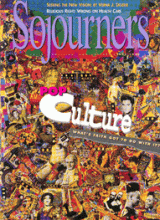You might not like the Religious Rights answers. But, on the subject of health reform, they at least ask some of the right questions.
In a recent attack on the Clinton health reform proposal, Pat Robertsons so-called Christian Coalition avoided the current tendency to nit-pick the plans intricate administration or complex financing. Instead, Robertsons group went right to the heart of the issue, framing the health reform debate as one that is essentially about ethical values.
It is a point that Hillary Rodham Clinton has herself been emphasizing for some time. But the proposed Health Security Act, which embodies the Clintons reform plan, obscures their moral vision under the deadening weight of its 1,300 pages of legal verbiage.
The bills sheer length and complexity play into health industry-cultivated fears of burdensome government regulation, and seemingly confirm the lobbyists assertion that health reform is a complex matter best left to the "experts." For months, voters have been relegated to the role of bewildered spectators, while technocrats and lawyers have debated the arcane details of managed competition, health care purchasing alliances, and global budgets.
It is time to move on. For one thing, the Clinton bill, at least in its original form, is dead. None of the myriad competing health reform bills currently command enough congressional support to win passage. Whatever is enacted will therefore be a compromise, stitching together elements of various different proposals. In these circumstances, it is now easierand more important than everto get beyond the technical intricacies of a particular bill and focus on the broad ethical issues at stake.
Read the Full Article
